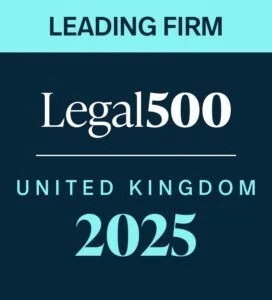
Wills, Trusts and Inheritance Disputes
If a will or inheritance is disputed following a death, it can make a difficult time even harder. When businesses or farms are involved, matters can be even more complicated. We understand these emotionally charged disputes and advise with empathy and pragmatism, listening and working with you to find the right solution.
Key contact

Beth King-Smith
Partner, Head of Disputed Wills, Trusts & Estates and Worcester Private Client team
Where wills are concerned, blood isn’t always thicker than water and families can self-destruct following a death. Grieving for a loved one and warring with other family members can create a difficult and upsetting situation for everyone involved. This is especially the case in disputes in a farming context where family members are also in partnership with each other.
Experience across the board
We regularly act for executors, beneficiaries, dependants and those excluded from a will.
We are experienced in alternative dispute resolution and will try to help you achieve a negotiated settlement wherever possible to avoid court proceedings.
We have particular experience in:
- Claims for financial provision under the Inheritance (Provision for Family and Dependants) Act 1975
- The validity of wills (including issues of undue influence, capacity, execution, and rectification)
- The removal of executors, personal representatives, and trustees
- Disputes with executors (for example, where an executor is refusing to administer the estate)
- Disappointed beneficiaries
- Disputes between executors and beneficiaries
- Farming will disputes involving farmland and assets
- Breach of trusts
- Professional negligence concerning will drafting.

A considered approach
We make sure we understand the background of your dispute, including any relevant interfamily politics and relationships. We provide frank, realistic advice, taking steps to help you preserve relationships where possible.
Whatever the nature or value of the dispute, we approach each case with the same care and diligence, paying attention to the detail and negotiating appropriate settlements as quickly and cost-effectively as we can.
Disputed Wills, Trusts and Estates – Frequently asked questions
If there is no will the laws of intestacy will apply. You can find helpful guidance on the government website.
As to administration of the estate, the most “entitled” person can apply, so the closest living relative, usually the spouse or civil partner followed by the children (including legally adopted children but not step-children).
Before a Grant of Probate is issued, it is up to the executors who receives a copy of the will. So, even as a beneficiary, you are not entitled to see a copy of the will without the agreement of the executors.
Once the Grant of Probate has been issued the will becomes a public document and so anybody can obtain a copy. This can be done online for a small fee on the government website.
A person who has an interest in the estate, such as a spouse, other direct family member or cohabitee, and is a beneficiary in the current will, or in a previous will, or who would inherit under the laws of intestacy (where there is no valid earlier will in existence).
If the will challenge is successful and the will is deemed invalid, then the previous will comes into effect. If there is no previous will, the laws of intestacy will apply.
Every case is different and we will be able to advise you on whether or not we think you could make a successful claim.
Briefly, the grounds for challenging a will are:
- Has the will been properly executed. So, is it correctly signed and witnessed?
- Has the will been forged?
- Has the person making the will been put under undue pressure or coercion by another or others when making their will? This is known as “undue influence”. Mere persuasion is not sufficient.
- Did the person making the will have the mental capacity to make the will?
- Did the person know of an approve the contents of the will?
No. It might be that the person making the will may choose to change their will before they die.
If you are concerned about the contents of a will or the manner in which it was made, you can enter a caveat with the probate registry. This is a temporary restriction that prevents a Grant of Probate from being issued meaning the assets of the estate cannot be distributed. The caveat remains in place for six months and can be renewed.
Under English law, people are entitled to leave their estate to whoever they choose. However, if you have been left very little or nothing from the estate, it may be possible for you to bring a claim under the Inheritance (Provision for Family and Dependants) Act 1975 (“the 1975 Act”). A claim under the 1975 Act is for reasonable financial provision from the estate.
If you have been promised a property or gift from the person who has died and this is not reflected in their will, you may be able to bring a claim for the broken promise. You will need to show that the promise was made and that you relied on that promise to your detriment, such as giving up your employment or moving out of your own home.
There are no time limits to contest a will but, ideally, it should be done as soon as possible as, once the estate has been distributed, it can be difficult to recover funds or assets.
A claim under the Inheritance (Provision for Family and Dependants) Act 1975 is for reasonable financial provision and you have six months from the date of the grant of probate within which to issue your claim at court.
The majority of cases settle by negotiation, or a form of alternative dispute resolution such as mediation, without the need for court proceedings to be commenced.
Executors have a number of duties to fulfil and therefore have 12 months, from the date of death, before they have to start distributing the estate. However, if can take longer in more complex estates or, for example, where a property needs to be sold.
If you are concerned about undue delay then, as a beneficiary under the will, you can firstly write to the executor for an update on the administration and ask for a copy of the estate accounts.
In some circumstances you can make an application to the court to remove an executor for failing to comply with their obligations but the courts will not make that decision lightly.
Services from our Private Client team

Our Private Wealth sector
Clients who have built a significant assets base may face a complex legal and tax landscape. Our experts, who cover a range of legal disciplines, are on hand to provide specialist legal guidance and support to help individuals, their families, trustees and family offices.
Recognition of our work
Hear what our clients say about us
How can we help you?
"*" indicates required fields


















